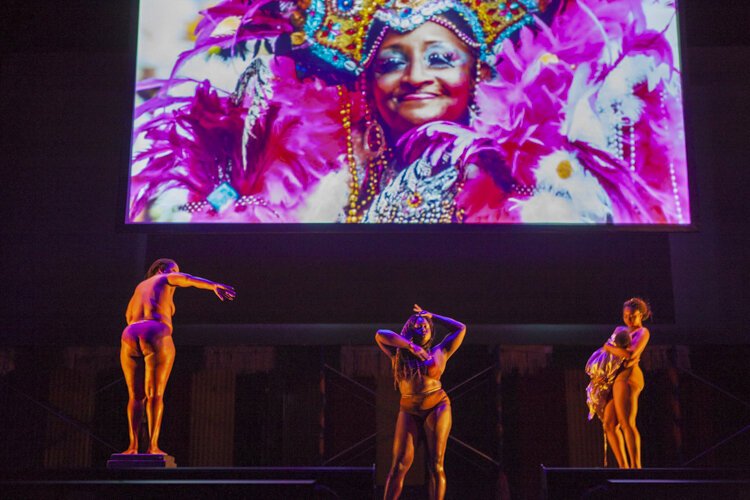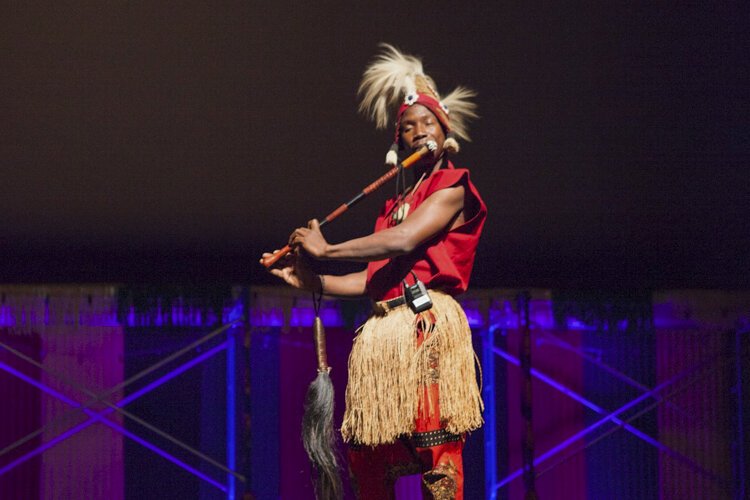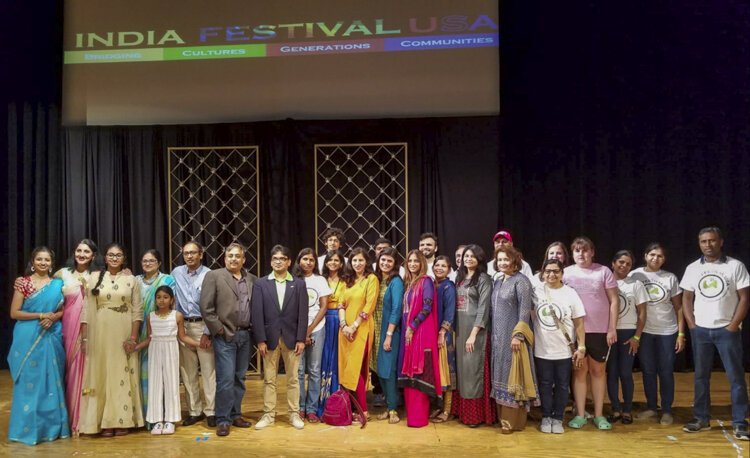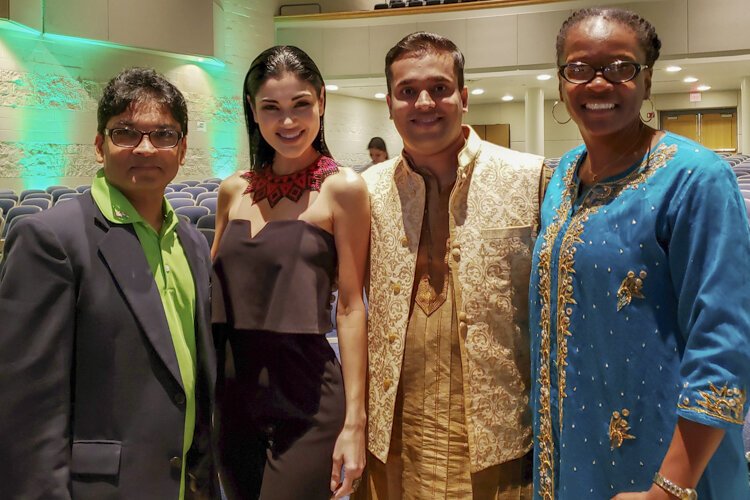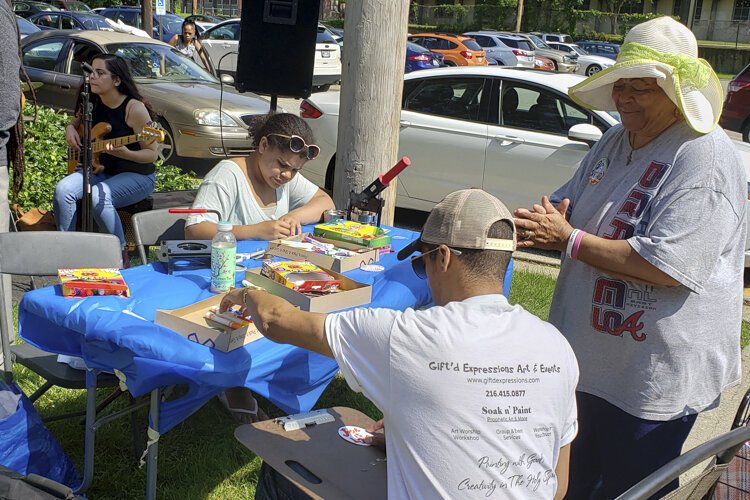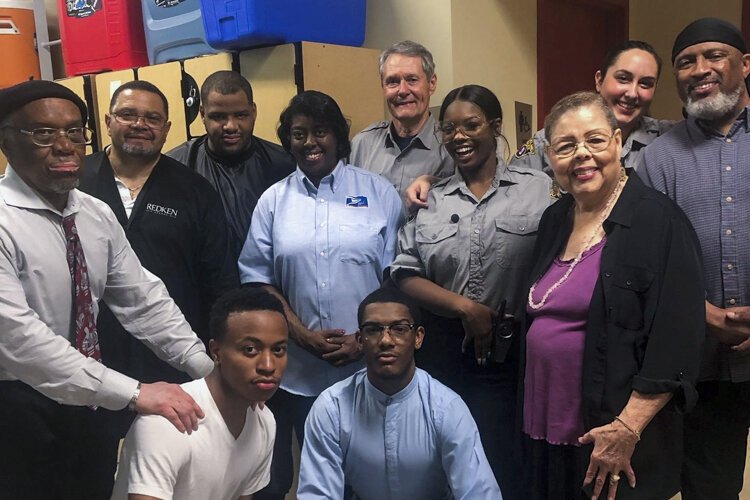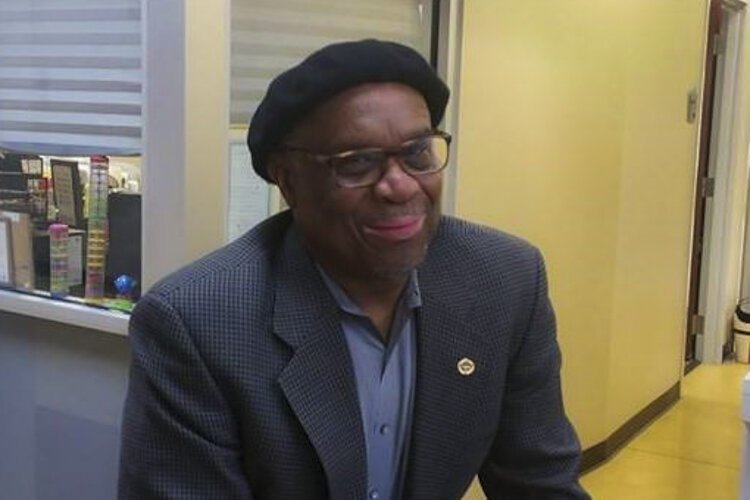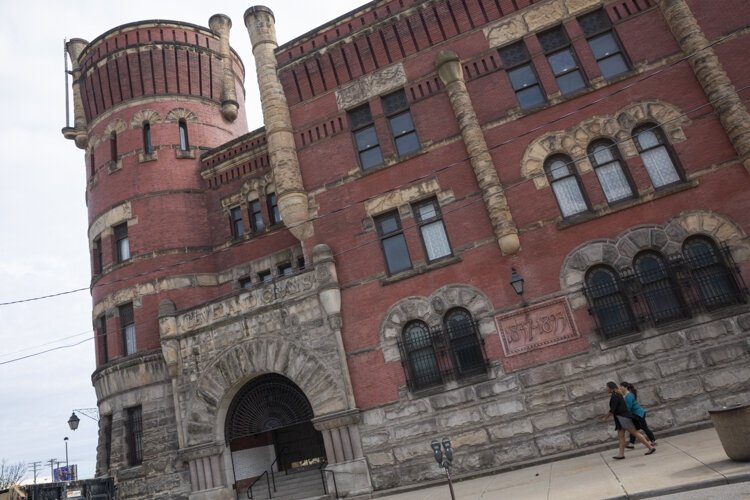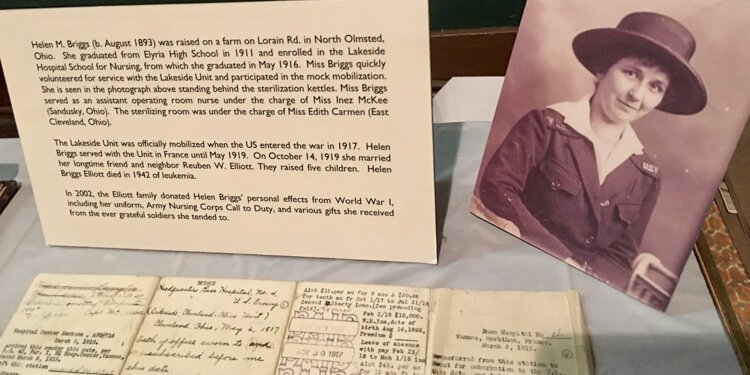
Small grants can make a big difference, Cuyahoga Arts & Culture finds
It takes a lot of rehearsal, dedication, and heart to put on a public performance of arts and culture, but for some local organizers, even a little bit of funding can make all the difference. Enter Cuyahoga Arts & Culture, known as CAC—one of the country’s largest public funders of arts and culture, having distributed more than $182 million to more than 400 organizations, both small and large, since 2007.
CAC supports efforts through two grant programs: General Operating Support grants and two kinds of Project Support grants. The latter grants help support Cuyahoga County-based arts and culture projects each year. The Project Support I track distributes grants up to $25,000, and the Project Support II track allocates grants for up to $5,000.
Sometimes $5,000 or less is all it takes to get a program off the ground and expand its offerings, especially for small endeavors.
“A $5,000 grant can be transformational to smaller or volunteer-led organizations,” says Jill M. Paulsen, CAC’s interim director and CEO.
The grants may be smaller, but they are just as important as the larger grants that CAC issues, says Paulsen. “Project Support II is our smallest grant program by dollars, but it funds the largest number of groups and is a crucial part of our annual grantmaking,” she says. “Our Project Support II grant recipients bring communities together and provide a broad range of arts and cultural experiences to residents. We are always amazed at the projects that result with an investment of up to $5,000 from CAC.”
In November 2018, CAC approved 149 Project Support II grants for 2019, for a total of $650,310. FreshWater Cleveland looks at five organizations that made the most out of their Project Support II grants in the last year.
 Wake up and Live's Wake Up and Live Actors’ Studio
Wake up and Live's Wake Up and Live Actors’ Studio
Sue Johnson formed Wake Up and Live Actors’ Studio in 1997 as a way to showcase aspiring performing artists and allow them to learn and improve on their crafts by presenting their works to a live audience.
It started as a part-time endeavor for the actor, director, producer, coach and consultant, and she still hosts much of the programming out of her Shaker Heights home, although she does work with Karamu House and the Rainey Institute and films her YouTube show, "Wake Up and Live With the Arts," at both locations. .
“We started in 1997, and we’ve evolved and changed,” she says. “We’re small. We are so honored and proud [to receive the grant].”
After receiving its first “significant” grant—a $5,000 CAC Project Support II grant—Johnson and her group produced “Black & Blue Rhapsody” by Cleveland playwright Richard Asbury this summer. Johnson used the grant money for rehearsal and performance space and to pay the actors.
They performed the play twice over a June weekend at the Rainey Institute and nearly packed the place. “Part of what we do is showcase original work by aspiring local playwrights,” Johnson says. “This was Richard Asbury's first full-produced performance.”
Eleven cast and crew members took part in the performances.
“Black & Blue” depicts Tate, a longtime barbershop owner, and Ace, his ex-con friend. They are hanging out with their Fairfax neighborhood customers and buddies when police drama presents community relations issues.
“It’s about the attitudes, perceptions, and behaviors of minority communities, mostly African-American communities, and the police,” says Johnson. “It’s a social commentary that addresses social issues that are important. There needs to be improvement, and [we must] open the lines of communication between the police and communities.”
After the performances, audiences were asked for feedback. The input was interesting, Johnson says. “The audience would have liked to have seen a little more redeeming qualities from the police,” she says. “They wanted more positivity by the police, where appropriate, that it showed more the negative qualities of the police and negative African-American perceptions and behaviors.”
At the same time, Johnson says the audience reaction was positive, and they understood Asbury’s message. “Richard wrote the play to show that neither side had complete understanding of what the other side is like,” she says. “The idea was to show it can be improved. It’s supposed to make people go away and think about other options, creative solutions between the two communities.”
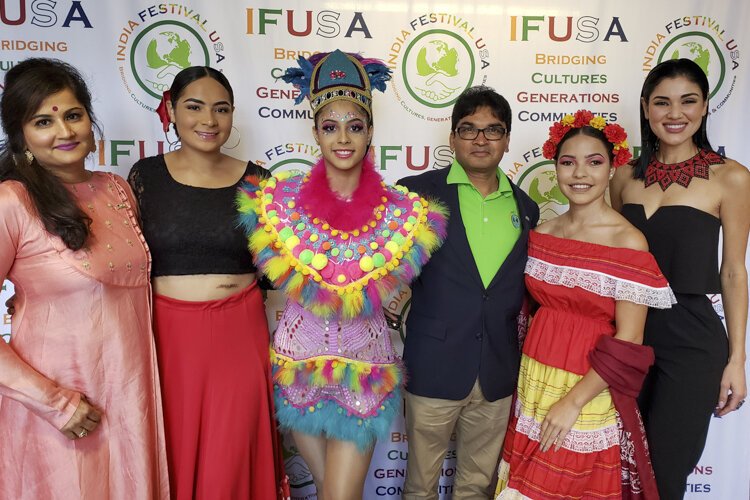 India Festival USA has outgrown Independence High School and is in search of a new location.India Festival USA
India Festival USA has outgrown Independence High School and is in search of a new location.India Festival USA
Although he was born in Unjha, Gujarat, India, Bharat Kumar is a Clevelander through and through. He and his parents moved to Cleveland in 1982. “I sometimes call myself the real Cleveland Indian,” Kumar jokes.
However, sometimes it’s difficult to preserve his parents’ culture and his Indian roots while also celebrating his Cleveland upbringing, he says. But Kumar says this is often the case in Cleveland’s “big salad bowl” of culture.
So, Kumar 10 years ago started India Festival USA as a way to celebrate the region’s cultural diversity. “This isn’t about one culture but many cultures,” he says. “We [try to] elevate diversity year-in and year-out.”
The festival can cost upwards of $30,000 to produce, and CAC awarded India Festival a $4,000 Project Support II grant for its September event at Independence High School, Kumar says. They used the grant to promote the event—which hosted 6,000 people this year—and help with facility rental, audio-visual needs, guest artist performances, trophies, and scholarships to students interested in the arts, he says. This year, Kumar even brought Luis Gomez, CAC's program manager, on stage for recognition.
A wide variety of Indian cuisine was served at the India Festival, and events included You’ve Got Talent (similar to the popular television show “America’s Got Talent”), a competition in dance, music, and other performing arts. Trophies were awarded to a Judges’ Choice winner, as well as trophies and cash prizes to People’s Choice winners.
Another favorite event is an intergenerational, multicultural dance presentation that this year merged Latin Salsa with Bollywood. “You could just see the sparkle in the audience’s eyes,” Kumar says of the presentation.
The event has become so popular, they have outgrown Independence High School, Kumar says, and he is looking for a new location for next year’s India Festival USA.
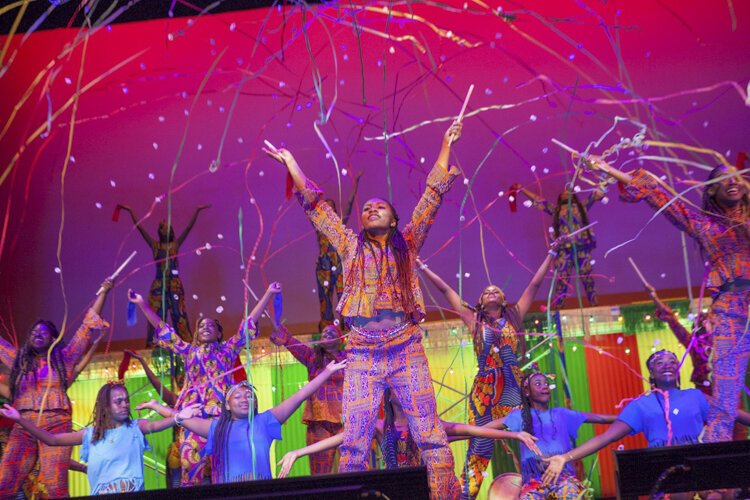 Cuyahoga Arts & Culture gave a $5,000 grant this year to Djapo Cultural Arts Institute’s African drum and dance festival.Djapo Cultural Arts Institute
Cuyahoga Arts & Culture gave a $5,000 grant this year to Djapo Cultural Arts Institute’s African drum and dance festival.Djapo Cultural Arts Institute
Djapo is the term in Wolof (the language of Senegal and Gambia) for “come together,” and that is exactly what Talise Campbell wanted to do when she founded Djapo Cultural Arts Institute. The organization uses traditional African dance, drumming, and music to bring people from different backgrounds together to learn about their similarities and differences.
“Our mission is to preserve the art, music, dance, and folklore of Africa and the African Diaspora,” she says. “We have an exchange program where we go to Africa each year, and then we have a community arts program to expose the culture and arts to the community.”
Djapo holds regular drum and dance classes for all levels of expertise, as well as hosts workshops. “We have people from various ethnic backgrounds, and we are multigenerational,” Campbell says. “It’s so wonderful to all come together and celebrate our culture.”
This past June, Djapo held its 10th annual African Drum and Dance Festival at the Mimi Ohio Theatre in Playhouse Square. Campbell received a $5,000 CAC Project Support II grant for the 2019 festival, which she says was used to rent Playhouse Square space as well as rehearsal space throughout Cleveland.
This year’s event drew more than 1,000 people, and Campbell says the grant helped Djapo draw a diverse group of participants from all over the county. It also allowed the group to perform in a central location.
“It’s important for Djapo to be able to teach audiences from a diverse pool,” Campbell says. “This grant allowed us access to various spaces inclusive of Playhouse Square so that we can bring cultural arts to the center stage of Cleveland on a professional platform.”
The two-day festival includes drumming and dance workshops as well as cultural education components. “It was absolutely phenomenal,” Campbell says of the 2019 festival. “We brought in people from different parts of Africa and parts of the United States. People look forward to it.”
Djapo will kick off its fall season with an open house from 2 p.m. to 5 p.m. Saturday, Oct. 5, at St. Paul’s Community Church, 4427 Franklin Blvd., Cleveland. The open house is free.
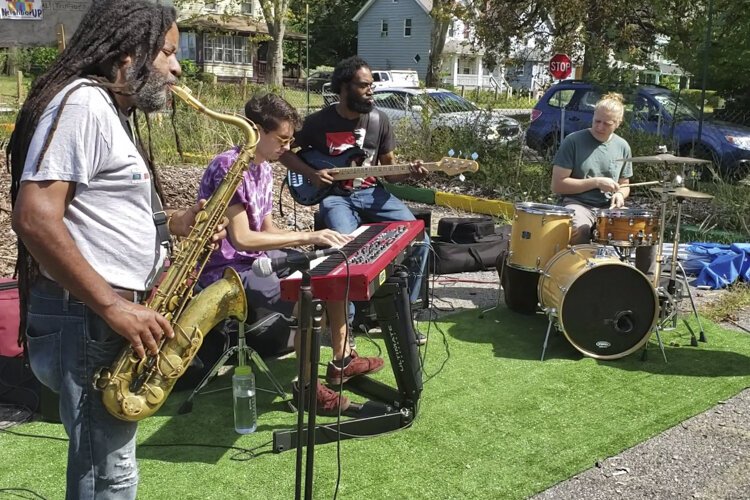 CollectivExpress entertains with music while educating about healthy eating and living.CollectivExpress
CollectivExpress entertains with music while educating about healthy eating and living.CollectivExpress
Josiah Britt is fighting hunger and creating awareness in Cleveland’s food deserts through the power of music. He formed CollectivExpress to use creative expression in some of the city’s poorest neighborhoods to not only provide entertainment but to host enriching family entertainment with a focus on healthy eating and living.
“The program we developed uses live music, art projects, and other artistic experiences and goes to areas of the city that are underserved and don’t have the time or desire to seek out quality art and culture,” Britt says.
In 2019, CAC awarded CollectivExpress a $4,000 Project Support II grant for its pop-up events at various music pantries and farmers markets. Britt and his team hit food pantries in Hough, Glenville, and East Cleveland, as well as the Coit Road Farmers Market and EC Grows Community Garden, both in East Cleveland, to speak, play music, recite poetry, and engage in conversations about health and wellness or whatever was on attendees’ minds.
“The grant was important to get for me because we want to partner with basic-needs organizations who serve vulnerable populations who can't afford high-quality live music, art, and culture,” says Britt. “Without this grant, we wouldn't be able to reach the people who need encouragement [the] most.”
They used the grant to pay for sound equipment, art supplies, and stipends for the artists and musicians.
“We went to these events where produce was being given away and paired that with a live band of very talented musicians,” Britt says. He talked to the event hosts about the initiatives and subjects that most impact the communities.
“Health and wellness is always at the top of the list,” he says. “We try to encourage people who may be down on their luck through positive affirmation. We tell them how important they are and that Cleveland won’t be happy until they’re taken care of.”
In addition to the live music, CollectivExpress brings artists to the farms and food pantries to lead a craft project. For instance, at one event, participants made buttons out of circles of paper. “We handed people a circle and asked them to put words or something that say something positive about the community,” Britt says. “We brought a button press, and they could then wear it on their shirts. It was a great way to capture the moment.”
Britt also organizes “mini-town hall meetings,” brings motivational speakers, and passes around a bullhorn for people to speak their minds. “Everybody was upbeat and feeling like they walked into a special experience,” he says. “This is something I knew could be done, and it needs to be done.”
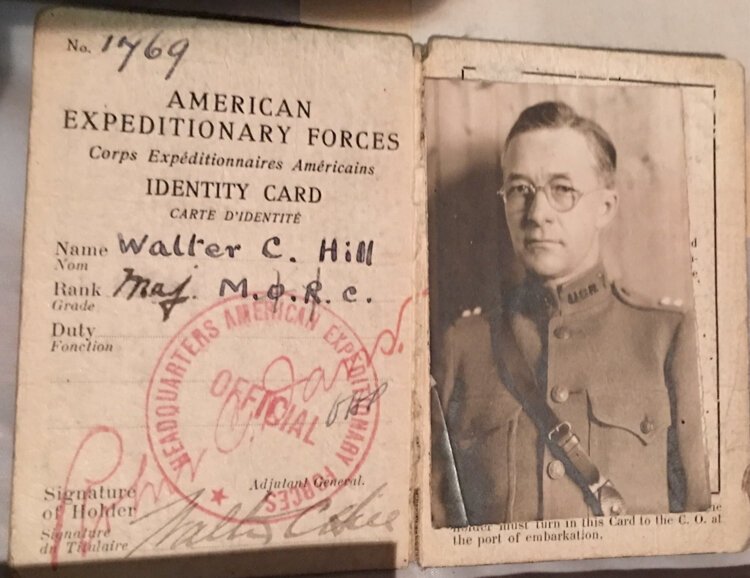 The Cleveland Grays' Unwritten History series shares little-known facts about historical events.Grays Armory
The Cleveland Grays' Unwritten History series shares little-known facts about historical events.Grays Armory
The Cleveland Grays Armory, America’s oldest independent armory, has hosted public and private events ever since opening its doors in 1893. For the past six years, the Cleveland Grays has been hosting its Unwritten History lecture series—a program that brings in experts to talk about intriguing but little-known facts about historical events.
“It’s a great opportunity to get people interested in not only military history in Cleveland but in history in general,” says Mary Beth Rauzi, Grays outreach coordinator. “This is a program we’re really proud of.”
CAC awarded the Cleveland Grays a $4,000 Project Support II grant for its 2019 Unwritten History series. The organization has received a total of $22,771 in CAC project grants for the series since it began in 2014. They use the grant money to advertise the Unwritten History events and to pay the speakers an honorarium, Rauzi says. Additionally, the Unwritten History lectures are free, although Rauzi says the optional dinner beforehand does cost a fee.
The most recent Unwritten History event was Sept. 24. Jennifer Kane Nieves, archivist and museum registrar at Case Western Reserve University’s Dittrick Medical History Museum, presented “The Cleveland Lakeside Medical Unit from World War l.”
Upcoming events in this year’s series include Living History Day with actors portraying different people in history on Saturday, Nov. 16, and on Friday, Nov. 22, the anniversary of Lee Harvey Oswald’s assignation of President John F. Kennedy, Joe Reardon—who met Oswald—will present his insights during “Lee Harvey Oswald: Hanging Out.”
Rauzi says plans are already in the works for next year’s series, which will include lectures on Soldiers and Sailors Monument designer Levi Scofield, the World War II Japanese internment camps, and the first 100 years of Ohio in 10 museum items.


